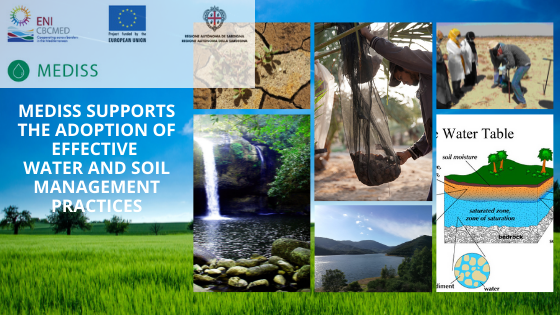MEDISS supports the adoption of effective water and soil management practices

European Green Deal needs new initiatives to really move to a circular economy, protect nature, and raise environmental standards in the European Union. The Commission adopted three new initiatives to convert the European Green Deal into a reality. New rules to limit deforestation, to facilitate waste-driven circular economy and, finally, to restore and protect soils are at the center of Commission engagement.
With respect to soil protection strategy, the EU introduces the EU Soil Strategy for 2030, a relevant tool aiming to agree to soils the same level of protection as water, marine environment, and air.
The EU Soil Strategy originated from the European Green Deal and the EU Biodiversity Strategy for 2030 framework. Acknowledging the relevance of healthy soils for biodiversity conservation, good food production, and carbon sequestration, the Commission decided that legal protection for soils is needed.
In fact, despite the efforts and existing measures, EU soils are menaced. Legally binding measures are introduced and combined with voluntary tools to augment carbon storage in agricultural land, repair degraded terrains, and struggle desertification.
By 2023 a new Soil Health Law will be proposed after a scenario assessment and consultation of stakeholders and the Member States. The Strategy envisages funding resources for public engagement and for sharing sustainable soil management knowledge and practices.
MEDISS project supports relevant interventions aiming at reducing soils salinization by adopting effective water and soils management practices. Waters have an effect on soils quality in numerous ways, such as irrigation with groundwaters, sea-level rise, and seawater intrusion.
Palestinian, Jordanian, Tunisian, and Italian partners are working hard to augment soils health and productivity. MEDISS partners are aware that poor and unhealthy soils impact biodiversity, poverty levels, and in extreme cases, food shortages. World Water Day, on 22 March, will be a further opportunity to reflect on the theme globally.









